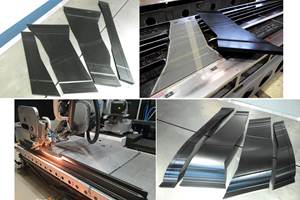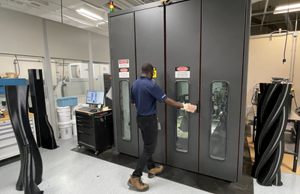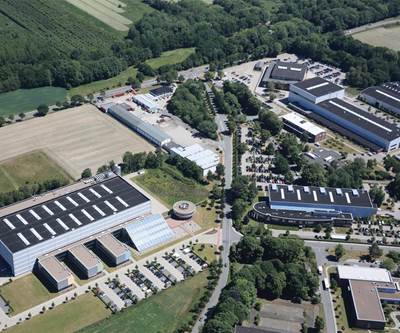CTC, an Airbus company, deploys Plataine AI-based solution to industrialize lightweight structures
3D-Hub demonstrates new production possibilities and will transfer knowledge to Airbus production sites and suppliers.
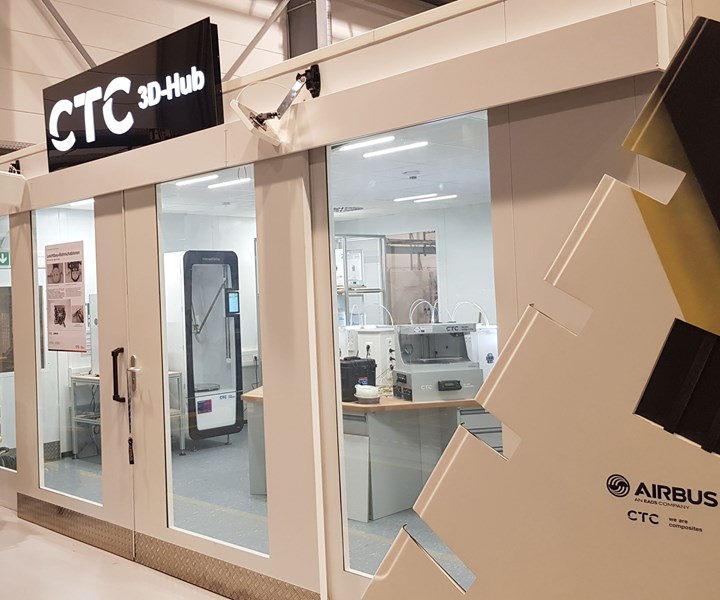
Composite Technology Center GmbH (CTC, Stade, Germany), a pioneer and trailblazer for new manufacturing technologies in the aerospace industry and Plataine, a leading provider of Industrial IoT and AI-based optimization solutions for advanced manufacturing, have partnered to optimize industrialized, serial production of 3D printed aerospace parts, including thermoplastics and reinforced composites.
CTC is manufacturing 3D-printed parts for Airbus, initially focusing on jigs, fixtures and tools, which offers shorter time to market, greater production flexibility, increased quality and cost reduction for certain low-and mid-volume production series. In order to deliver parts on time at the highest quality, CTC has deployed Plataine’s software to digitize, automate and optimize the manufacturing process while collecting sensor and machine data for analytics and smart predictions. This solution:
- optimizes spool management & consumption,
- enhances part traceability,
- offers complete visibility and process control.
3D Hub
CTC is not just a leader in composites technology development, but as explained in CW’s 2016 tour article, it also qualifies new technologies and completes pre-production trials for various Airbus production sites and suppliers. For several years now, CTC has been putting an array of additive manufacturing and 3D printing systems through their paces. This 3D Hub has also integrated Plataine’s material and asset tracking modules to show the challenges and opportunities in bringing 3D printed parts to series production, explains Marc Fette, COO at CTC GmbH.
“It is our mission to continuously explore innovative technologies in the fields of industrial manufacturing and adopting 3D printing (additive manufacturing) for series production,” says Prof. Dr. Axel Herrmann, CEO at CTC GmbH. “We have decided to expand our partnership with Plataine to meet our goal and help us overcome the inherent complexity of 3D printing and its related operational challenges.”
“Despite increased awareness about the potential of connected, industrial-scale 3D printing, in-house 3D printing production processes are often still isolated hubs,” says Fette. “Our strategic partnership with Plataine transforms this isolated hub into a productive and integrated facility. Our 3D Hub production is completely tracked, including not only the digitally manufactured products via networked 3D printers, but we also have sensors connected with the rolls of printer filament. The system knows at every time where the materials are, where the parts are in the manufacturing process and where the process is in terms of parameters and performance. Plataine’s holistic solution enables us to improve our operational efficiencies with better response time, optimized storage conditions and material consumption management.”
Cooperation and future transfer to supply chain
“We are excited to further cooperate with CTC GmbH, supporting their work in additive manufacturing mass production,” said Avner Ben-Bassat, Plataine’s President & CEO. “Plataine’s solution manages & optimizes complex manufacturing processes, by collecting data from sensors and machines in real time, providing AI-based alerts and optimal recommendations.”
“Plataine’s solution is an innovative concept that will increase CTC’s productivity significantly and enable them to scale up additive manufacturing. Plataine brings an automated, intelligent, end-to-end solution for additive manufacturing operations using applications such as tool tracking, material management and shelf-life management,” added Amir Ben-Assa, Chief Marketing Officer.
“We are demonstrating new production possibilities for future lightweighting technology and composites,” says Fette. “We are lighting a path for future production and will transfer this knowledge to Airbus production facilities and suppliers, extending this digital manufacturing to both large and small to medium enterprises.”
Related Content
Industrializing additive manufacturing in the defense/aerospace sector
GA-ASI demonstrates a path forward for the use of additive technologies for composite tooling, flight-qualified parts.
Read MoreReinforcing hollow, 3D printed parts with continuous fiber composites
Spanish startup Reinforce3D’s continuous fiber injection process (CFIP) involves injection of fibers and liquid resin into hollow parts made from any material. Potential applications include sporting goods, aerospace and automotive components, and more.
Read More3D-printed CFRP tools for serial production of composite landing flaps
GKN Aerospace Munich and CEAD develop printed tooling with short and continuous fiber that reduces cost and increases sustainability for composites production.
Read MoreEaton developing carbon-reinforced PEKK to replace aluminum in aircraft air ducts
3D printable material will meet ESD, flammability and other requirements to allow for flexible manufacturing of ducts, without tooling needed today.
Read MoreRead Next
Composites 4.0: digital assistants, edge computing and the future of smart factories
Plataine reviews developments and discusses where composites manufacturing is headed.
Read MoreCW Plant Tour: Composite Technology Center, Stade, Germany
A cornerstone of Germany’s CFK Valley, CTC pushes composites forward via automation, recycling, digital thread-based manufacturing and more.
Read MoreAll-recycled, needle-punched nonwoven CFRP slashes carbon footprint of Formula 2 seat
Dallara and Tenowo collaborate to produce a race-ready Formula 2 seat using recycled carbon fiber, reducing CO2 emissions by 97.5% compared to virgin materials.
Read More

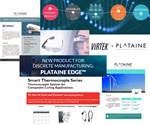














.jpg;maxWidth=300;quality=90)




